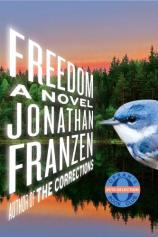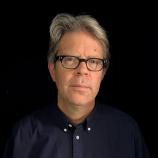Freedom
Review
Freedom
There is a certain amount of hubris involved in titling a novel with a word as capacious and controversial as “freedom.” Happily, Jonathan Franzen has the ability to produce a work fully worthy of that portentous term. He has done that with integrity, compassion and humor in a story that is as real as your next-door neighbors and as rich with contemporary relevance as tonight’s cable news broadcast.
"While it’s risky to predict how the winds of literary fashion may blow, Franzen’s novel has all the earmarks of a work of enduring merit and significance."
From the outside, it’s hard to imagine more conventional archetypes of late 20th-century urban gentry than Patty and Walter Berglund. Married shortly after their graduation from the University of Minnesota, they move into a marginal neighborhood in St. Paul and spend 10 years renovating a Victorian home while raising their two children, Jessica and Joey. Earnest, public-spirited Walter begins his career as an attorney for 3M but quickly deserts the corporate world for the Nature Conservancy. Eventually he lands at the Cerulean Mountain Trust, an organization created by a Texas oil billionaire to preserve 100 square miles of pristine West Virginia mountain land --- the native habitat of the tiny cerulean warbler --- while at the same time denuding 14,000 coal-rich acres nearby through the brutal process of mountaintop removal. Patty, a stay-at-home mother, increasingly is frustrated in that role as the years pass.
A good portion of the story of the Berglunds’ troubled marriage is recounted in Patty’s therapeutic journal entitled, with rueful understatement, “Mistakes Were Made.” In place of a conventional first-person narrative, she writes in the voice of someone she calls “the autobiographer,” telling of her days as a college basketball star (second team All-American after her sophomore year) and sketching the landscape of the tense emotional triangle at the heart of the novel. The third member of that triangle is Richard Katz, a friend of Walter’s from their college days and an iconoclastic alt-rocker whose bands (the Traumatics and Walnut Surprise) are the kind with “record sales in the low four digits and audiences in the high two digits.” Walter, kindhearted and dutiful, is a small planet circling Richard’s sun, and while Patty makes what at first seems the safe choice, her inability to shake Richard’s gravitational pull enmeshes the threesome in a swirl of emotional and sexual betrayal that Franzen portrays with frightful precision.
Amidst the drama of the Berglunds' fraught but enduring relationship, Franzen roams over a lively assortment of timely issues, from environmental battles to overpopulation, the war in Iraq and the frantic emptiness of our consumer culture, without ever giving the sense he’s checking off boxes or resorting to these touchstones merely to invest his story with a feeling of relevance. Like far-off flashes of heat lightning, those elements are present without dominating the central story.
FREEDOM also benefits from Franzen’s ability to leaven the unquestionably serious tone of the novel with bursts of wry, even self-deprecating, humor. In one, Walter, who on the surface fits the profile of the quintessential NPR connoisseur, condemns the radio network for “deliberately wasting precious minutes of airtime every morning and evening --- minutes that could have been devoted to raising the alarm about overpopulation and mass extinctions --- on famously earnest reviews of literary novels and quirky musical acts like Walnut Surprise.” The account of the trip Joey Berglund (who commits the almost unpardonable sin of becoming a Republican) takes to Argentina in the company of his college roommate’s voluptuous sister, abandoning her to search out spare parts in Paraguay for obsolete Polish trucks shipped to Iraq on behalf of an unscrupulous military contractor, is an uproarious piece of comic writing.
True to the novel’s title, Franzen persistently explores the notion of freedom in a multiplicity of expressions. Whether it’s rapacious corporations left unchecked to despoil the environment, the freedom of an immigrant to “make the most of his abilities,” or the propensity of feral cats to roam the land slaughtering songbirds by the millions, we come to see that freedom, for all the homage we pay to it in America, is far from an unalloyed good. In this land where we live amidst persistent reminders that we are free to reinvent ourselves over and over again, Patty and Walter Berglund’s clumsy efforts to do just that are even more poignant.
But given Franzen’s obvious ambition, the inevitable question that lingers when one turns the last of FREEDOM’s 562 pages is whether this is a novel that will be read a generation or two from now. While it’s risky to predict how the winds of literary fashion may blow, Franzen’s novel has all the earmarks of a work of enduring merit and significance. Its penetrating examination of our uneasy times is surpassed only by the acuity of his insight into the souls of his troubled creations. In those terms, and apart from the grace and clarity of his prose, it is a novel of consequence and more than fulfills the bold promise of its title. When it ends, you’ll be a little wiser about the ways of our world and you will feel as if you know Patty and Walter Berglund, their family and the elusive Richard Katz as well as you know some of your closest friends. Maybe better.
Reviewed by Harvey Freedenberg on January 22, 2011
Freedom
- Publication Date: September 27, 2011
- Genres: Fiction
- Paperback: 608 pages
- Publisher: Picador
- ISBN-10: 0312576463
- ISBN-13: 9780312576462





